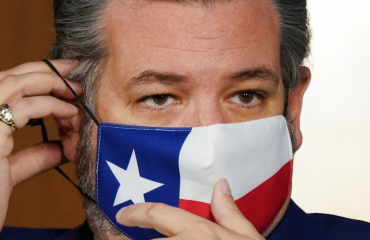Chess: 17-year-old shocks Carlsen and becomes youngest world rapid winner – The Guardian
Nodirbek Abdusattorov of Uzbekistan defeats Carlsen, Fabiano Caruana and Ian Nepomniachtchi to become youngest ever world champion in open competition
Last modified on Fri 31 Dec 2021 22.39 GMT
A little-known 17-year-old from Uzbekistan made a clean sweep of Magnus Carlsen and the global chess elite on Tuesday, incidentally setting a world age record. Nodirbek Abdusattorov won the World Rapid championship in Warsaw, claiming en route the scalps of Magnus Carlsen and the No 1’s last two challengers, Fabiano Caruana and Ian Nepomniachtchi. In rapid chess each player has 15 minutes for all moves, plus a 10 second per move increment.
After 21 rounds of three-minute games on Wednesday and Thursday, France’s Maxime Vachier-Lagrave defeated Poland’s Jan-Krzysztof Duda in a tie-break to win the World Blitz title. The 18-year-old world No 2, Alireza Firouzja, was third but Carlsen was well adrift in 12th place. He said: “Some days you just don’t have it. I was nowhere near close to the level I needed to be today.”
At 17 years three months Abdusattorov becomes the youngest ever world champion in open competition, surpassing Ruslan Ponomariov at 18 in the Fide version of the then disputed classical crown in 2001 and Carlsen, also at 18, in the 2009 World Blitz. The next youngest were 22 – Garry Kasparov, in his first victory over Anatoly Karpov in 1985, and Daniil Dubov and Sergey Karjakin when winning speed titles. The world women’s championship has a younger record holder, as Hou Yifan won it in 2010 aged 16, after being the defeated finalist two years earlier.
Earlier in the teen from Tashkent’s blossoming career he had won the world under-eight championship, defeated two grandmasters at nine and been singled out in this column when he narrowly missed becoming the youngest ever GM at 12.
Abdusattorov had his share of good fortune at Warsaw, surviving three lost positions, but he also played a very strong field where Levon Aronian and Boris Gelfand were among his other victims.
After 13 rounds he was in a quadruple tie on 9.5 points with Carlsen, Caruana and Nepomniachtchi, but the regulations excluded Carlsen and Caruana from the play-off due to their inferior tie-breaks. An angry Carlsen denounced the rules as “idiotic. Either all players on the same amount of points join the play-off or no one does.”
It was balancing luck for Nepomniachtchi, who in this same event and under the same rules in 2017 was excluded from the play-off, but the Russian was outgunned in the tie-break games. Abdusattorov easily drew with Black, then won the second game despite twice missing mate in two near the end.
Abdusattorov is the second player from Generation Z, defined as people born from 1995 to 2010, to break through to the chess top. Firouzja, whose victories in Latvia and Slovenia last month made him No 2 behind Carlsen in the global rankings, was out of form in Warsaw in the rapid but finished strongly in the three-minute blitz to take the bronze medal and narrowly miss out on the Vachier-Lagrave v Duda play-off.
Yet another Gen Z player surged into the limelight when Bibisara Assaubayeva, 17, captured the world women’s rapid championship silver medal with 8.5/11, half a point behind Russia’s “chess Queen” Alexandra Kosteniuk. The teen from Kazakhstan did even better in the women’s blitz, reversing the result to take gold to Kosteniuk’s silver.
Uzbekistan has long punched far above its weight in world chess. Four of its teenagers did well in last month’s Grand Swiss at Riga while Javokhir Sindarov, 16, finished in eighth place in the blitz at Warsaw ahead of many of the world elite.
Long ago the old USSR set the standard for young talent with a golden generation including David Bronstein, Tigran Petrosian, Ewfim Geller and Mark Taimanov. England in the 1970s followed the Soviet model with Jon Speelman, Nigel Short, Michael Adams and later Luke McShane, Gawain Jones and David Howell. India and the US are doing best now with super-squads,but Uzbekistan is showing what can be achieved even by a small nation with the right approach to developing an elite.
Fide has announced that the eight-player 2022 Candidates will be staged in Madrid in June-July 2022, with patronage from the Scheinberg family, who have previously backed opens in the Isle of Man and whose fortune comes from the sale of PokerStars for nearly $5bn.
So far the qualifiers are Nepomniachtchi (loser of the 2021 title match), Caruana and Firouzja (Riga Grand Swiss), Sergey Karjakin and Jan-Krzysztof Duda (World Cup), Teimour Radjabov (Fide nominee), with the remaining two to come from the Fide Grand Prix at Berlin and Belgrade in February-March 2022. The Candidates and its winner have become even more significant than usual after Carlsen’s announcement that he will only defend his title if the challenger is from the new generation, so raising the stakes for the top two Candidates who could end up playing between them for the supreme crown.
3796: 1 Rc1! Qxa6 2 Rxc4! bxc4 3 Qh3! and White makes a second queen. The trap is 1 Rd8?? Qxa6 2 c8=Q Qa1+ 3 Kg2 Qf1 mate.




